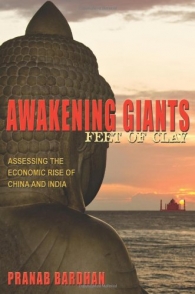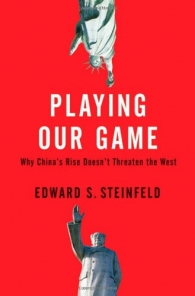- HOME
- INTRO TO THE FORUM
- USE AND MISUSE
- BADLY WRITTEN, BADLY SPOKEN
- GETTING
TO KNOW ENGLISH - PREPARING FOR ENGLISH PROFICIENCY TESTS
- GOING DEEPER INTO ENGLISH
- YOU ASKED ME THIS QUESTION
- EDUCATION AND TEACHING FORUM
- ADVICE AND DISSENT
- MY MEDIA ENGLISH WATCH
- STUDENTS' SOUNDING BOARD
- LANGUAGE HUMOR AT ITS FINEST
- THE LOUNGE
- NOTABLE WORKS BY OUR VERY OWN
- ESSAYS BY JOSE CARILLO
- How Finite Verbs Differ From Non-Finite Verbs
- The Need To Avoid Officious Stock Phrases When Writing Or Speaking
- Sounding Profound By Quoting Someone Without Attribution
- Why We Need to Hyphenate Certain Compound Modifiers
- Let’s Come To Grips With The Proper Use Of“However”Once And For All
- How English Makes Do To Evoke The Sense Of The Past Imperfect
- ABOUT JOSE CARILLO
- READINGS ABOUT LANGUAGE
- TIME OUT FROM ENGLISH GRAMMAR
- NEWS AND COMMENTARY
- BOOKSHOP
- ARCHIVES
TIME OUT FROM ENGLISH GRAMMAR
This section features wide-ranging, thought-provoking articles in English on any subject under the sun. Its objective is to present new, mind-changing ideas as well as to show to serious students of English how the various tools of the language can be felicitously harnessed to report a momentous or life-changing finding or event, to espouse or oppose an idea, or to express a deeply felt view about the world around us.
The outstanding English-language expositions to be featured here will mostly be presented through links to the websites that carry them. To put a particular work in better context, links to critiques, biographical sketches, and various other material about the author and his or her works will usually be also provided.
I hope you’ll enjoy the new selections that will be presented here.Joe Carillo
The real score in China’s and India’s rise as economic powers
What’s the real score in the near double-digit growth rates of China and India in recent years? Are they clear-cut indications that both countries are surely on their way to becoming world powers capable of eclipsing both North America and Europe? Two recently published books have attempted to answer these questions, Pranab Bardhan’s Awakening Giants, Feet of Clay: Assessing the Economic Rise of China and India (Princeton University Press, 192 pages) and Edward Steinfeld’s Playing Our Game: Why China's Rise Doesn’t Threaten the West (Oxford University Press, USA, 280 pages).

In “Interdependency Theory: China, India, and the West,” a socio-political analysis of the two books in the September/October 2010 issue of Foreign Affairs Magazine, Simon Tay says that Awakening Giants, Feet of Clay is a welcome corrective to the view that China’s and India’s growth will continue at a breakneck pace for decades. “It succinctly summarizes the challenges facing China and India, including environmental degradation, unfavorable demographics, poor infrastructure, and social inequality—threats that the leaders of China and India understand,” he says.

In the same article, Tay says that Steinfeld’s book Playing Our Game offers a different perspective on China’s rise, arguing that the changes in China’s economic and political systems are not contradictory but are more or less in sync because of China’s having developed the capability for “institutional outsourcing” from the global system. Agreeing with Steinfield’s argument, Tay asserts: “Having been influenced by foreign investors and experts, the Chinese government and business community have deliberately altered China’s commercial environment, especially with regard to legal institutions and industrial-labor relations.”
But Tay says that with their simultaneous rise as economic powerhouses, China and India are now competing for markets, natural resources, commercial investment, and political influence in Asia and worldwide. “The challenge for Beijing and New Delhi is to combine power and legitimacy,” he says. “Only then can the Chinese and Indian governments take measures that may be unpopular in the short run or damaging to some politically connected sectors but necessary for long-term progress: stimulating job growth, alleviating poverty, protecting the environment, or other vital tasks.”
Read Simon Tay’s “Interdependency Theory” in the Foreign Affairs Magazine now!
RELATED READING:
In “China and India: Contest of the Century,” an article in its August 19, 2010 issue, The Economist says that with their rise as economic powers, the two countries should be playing a bigger role in shaping the rules that will govern the 21st century. “That requires concessions from the West,” the magazine. “But it also requires commitment to a rules-based international order from China and India.”
Read “China and India: Contest of the Century” in The Economist now!






